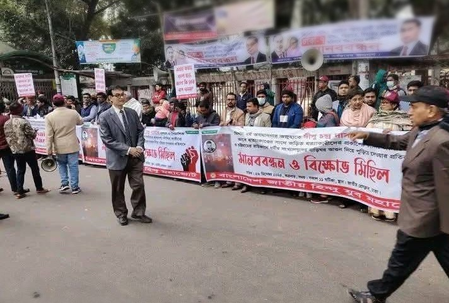
New York, Feb 1 (IANS) An Indian-American man admitted that he failed to maintain an anti-money laundering programme in violation of the Bank Secrecy Act as part of a scheme to bring lucrative and high-risk international financial business to a small, unsophisticated credit union.
Gyanendra Asre, 56, a certified anti-money laundering specialist from New York, is scheduled to be sentenced on May 3, a Department of Justice release stated on Wednesday.
According to court documents, from 2014 to 2016, Asre was a member of the supervisory board of the New York State Employees Federal Credit Union (NYSEFCU), a financial institution that was required to have an anti-money laundering program.
Through the NYSEFCU and other entities, Asre participated in a scheme that brought over $1 billion in high-risk transactions, including millions of dollars of bulk cash transactions from a foreign bank to the NYSEFCU.
Experienced in international banking and trained in anti-money laundering compliance and procedures, Asre represented to the NYSEFCU that he and his businesses would conduct appropriate anti-money laundering oversight as required by the Bank Secrecy Act.
Based on Asre’s representations, the NYSEFCU — a small credit union with a volunteer board that primarily served New York state public employees — allowed Asre and his entities to conduct high-risk transactions through it.
Contrary to his representations, Asre failed to implement and maintain an anti-money laundering program at the NYSEFCU.
This failure caused the NYSEFCU to process the high-risk transactions without appropriate oversight and without ever filing a single Suspicious Activity Report, as required by law.
A federal district court judge will determine any sentence after considering the US Sentencing Guidelines and other statutory factors.
Asre’s case was prosecuted by Acting Chief Margaret Moeser of the Criminal Division’s Money Laundering and Asset Recovery Section (MLARS).
MLARS’ Bank Integrity Unit investigates and prosecutes banks and other financial institutions, including their officers, managers, and employees, whose actions threaten the integrity of the individual institution or the wider financial system.
–IANS
mi/svn




